Why you should not kill jellyfishes
Author of the text: Marko Trivunčević
Photos by Marko Trivunčević
The holiday season and holidays have begun and a large number of our fellow citizens go to Greek resorts. In addition to the beautiful sea, nature, culture and good hosts, it’s possible that some of you will experience an inconvenience in the form of a yellowish-white jellyfish floating in shallow waters. You may be tempted to take it out and leave it on the beach, in order not to bring yourself and your children in jeopardy.
Unfortunately, that way the jellyfish certainly dies, and the only danger is hidden in insufficient information, and on this occasion, thanks to the GrčkaInfo website, I appeal to you not to do it.
I will give you several reasons why the extraction of the Mediterranean jellyfish is completely unnecessary and extremely unacceptable.
First of all, the Mediterranean jellyfish is HARMLESS. There is no recorded negative effect of Mediterranean jellyfish on humans. Personally, I repeatedly returned jellyfishes to the sea and I never even felt or seen any reaction in the form of itching, rash or redness. After all, this is a quote from the Inhabitat website:
“Jellyfish Cotilorhiza tuberculata inhabits the warmer waters of the Mediterranean, the Aegean and the Adriatic Sea. Its diameter can be up to 35 cm (usually smaller than 17 cm), and its tentacles are so weak that the “bite” does not have a serious effect on people. “
Also, unprofessional extraction is NOT PERMITTED. There are services which, in case of over reproduction, professionally and within the framework of sustainable development, remove these jellyfish. Since the Mediterranean jellyfish lives only in this area (Ionian, Aegean and Mediterranean seas, sometimes they stray to the Adriatic), if the coastguard or similar service caught you in extraction of jellyfishes (but also other living creatures, octopuses, etc., or if you hunt with a harpoon without a permit), there is a great chance that you will spend the day at the police station and end up with a fine ranging from a few hundred to several thousand euros.
Jellyfish is here all year long, the sea that we visit is its house, and we are the GUESTS. An egocentric approach to, if this animal or plant is annoying us, we must destroy it, is the thinking that has long ago been overcome. If we only look at it a little differently, we annoy the jellyfish, not the other way around.
In any case, I believe that most people are civilized enough and that extraction comes from fear, not from savagery.
Mediterranean jellyfish is, apart from being completely harmless, also INTERESTING. Its yellow color is blended with white and bright blue and you can have great fun if, instead of removing it from your path, dive with it and take photos. You can also teach your children to respect nature and animals.
In the end, this jellyfish is extremely HELPFUL. In the ecosystem, it is food for a large number of marine species. It is one of the few species that moves independently from the sea current, so it is often studied and mapped.
Perhaps the most important thing - there are currently researches for the use of Cotylorhiza tuberculata in cancer treatment.
Once again I ask you, as your fellow citizen, a fellow traveler and Greece lover, as a diver and an ecologically-minded person, not to take out and kill these beautiful creatures. Thank you!
(if you encounter another kind of jellyfish, also do not touch it or take it out, especially if you are not familiar with the toxicity of the species, because you may also ruin your vacation with some minor injury, or maybe even put your life in danger if serious burns and allergic reactions occur).

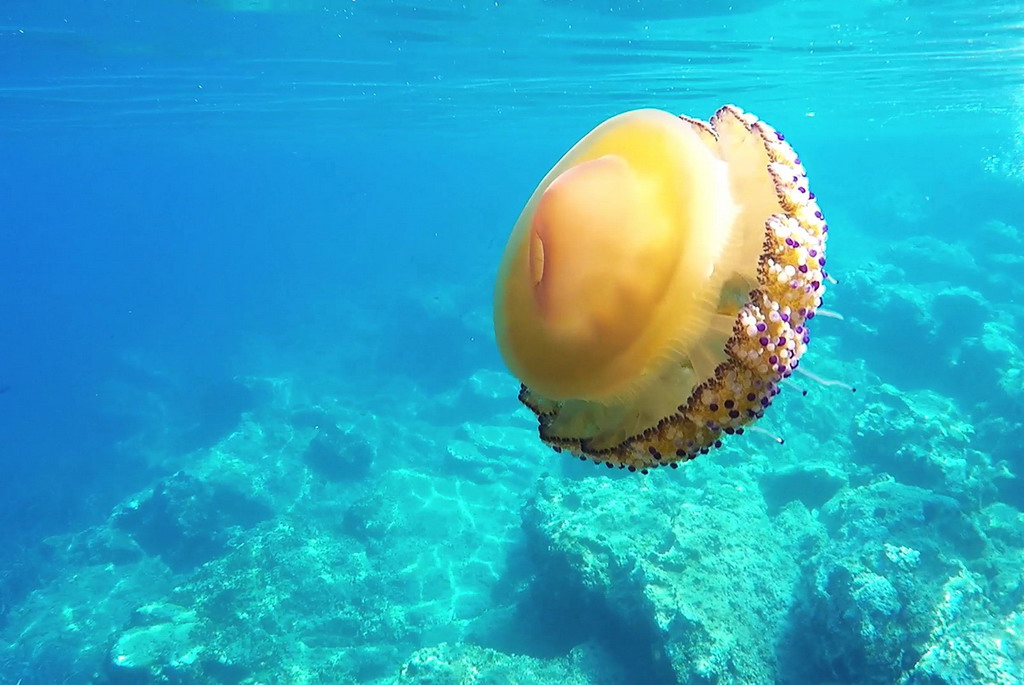
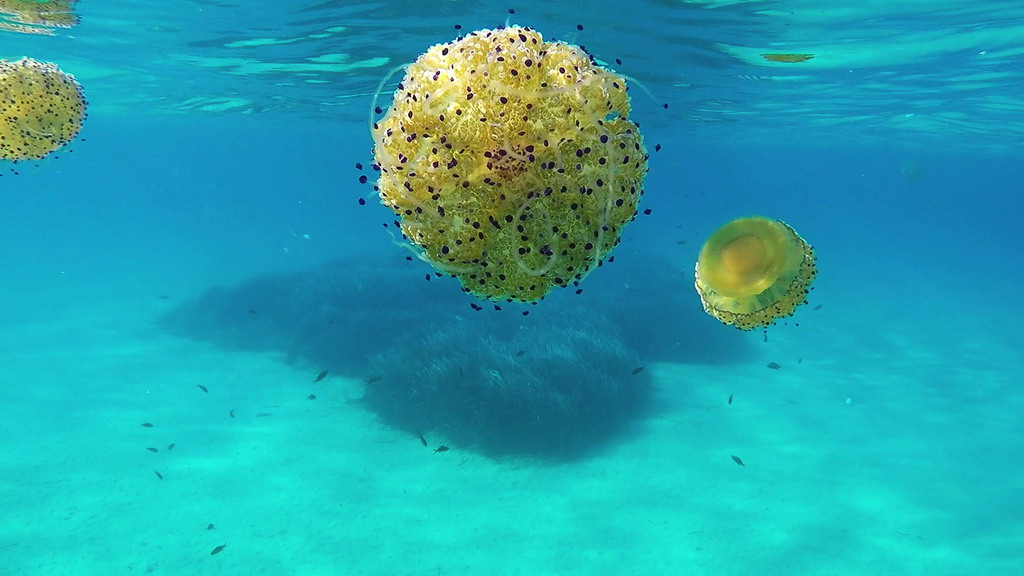
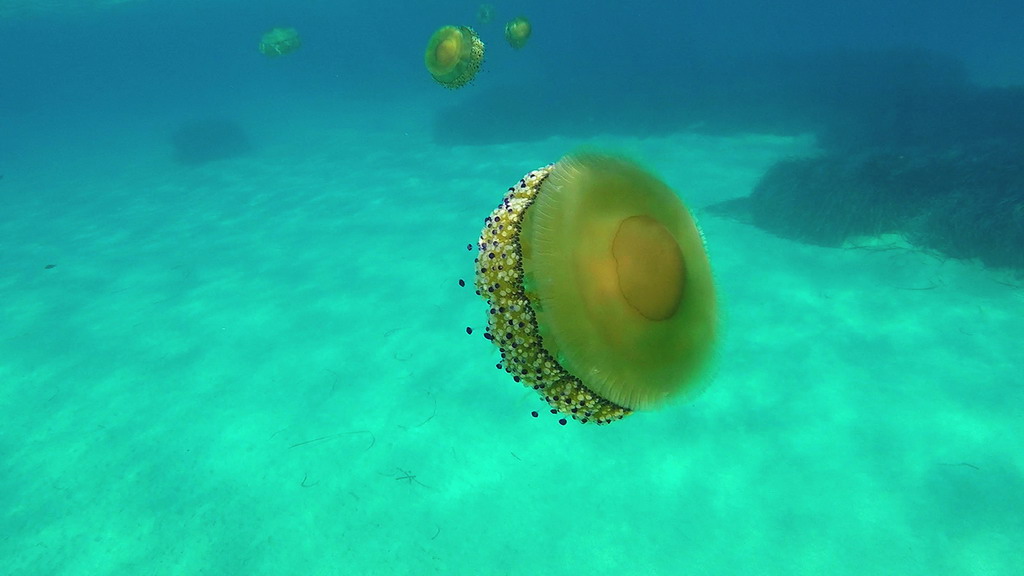
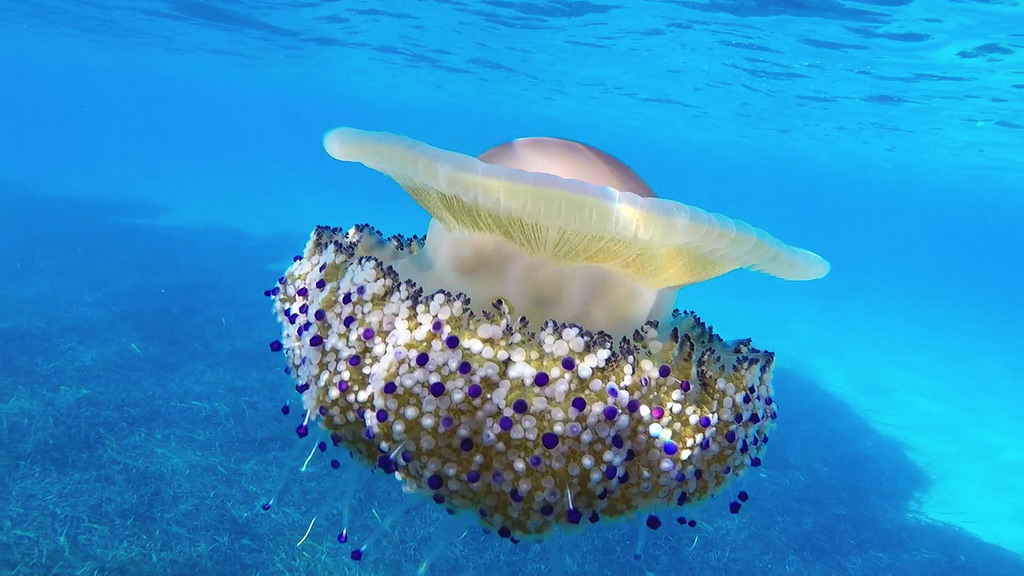
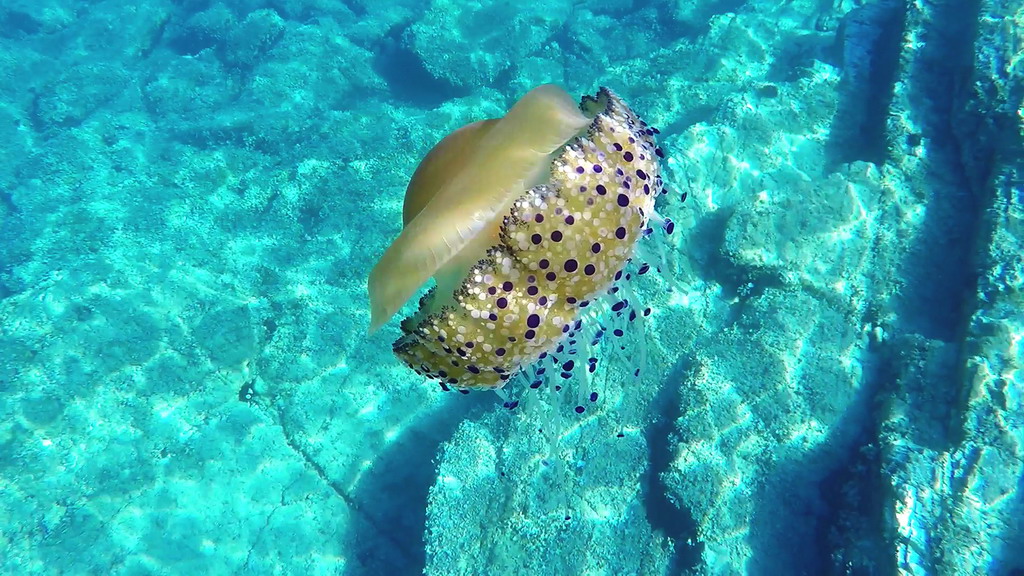

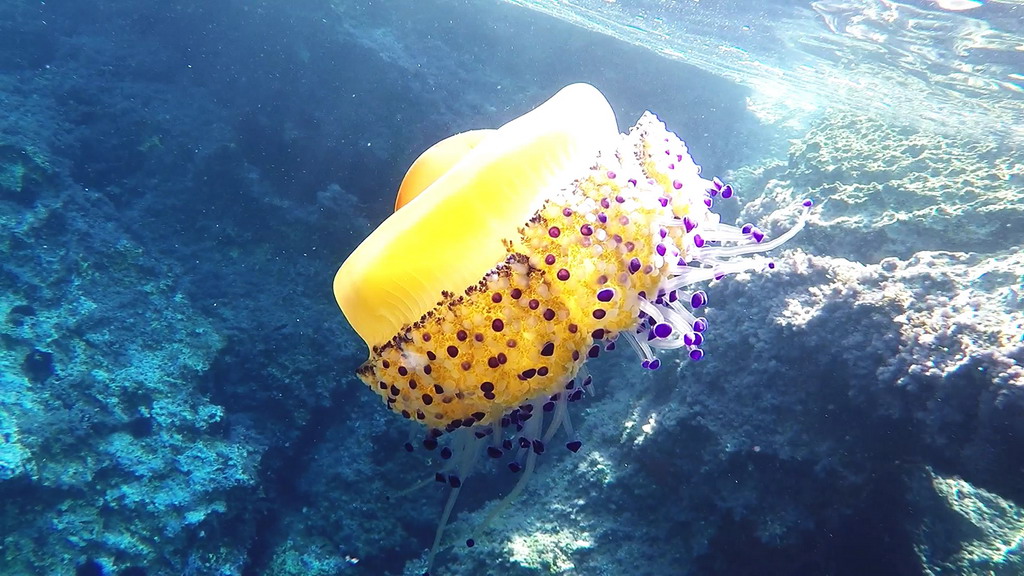











Post a Comment
NOTE
All your questions in the comments will receive an answer via email so check your inbox shortly after you posted comment. For more detailed questions and responses, contact us via mail nikana@nikana.gr.